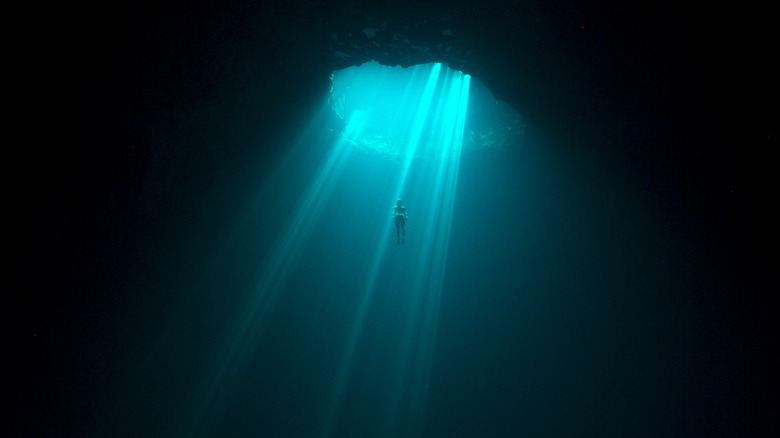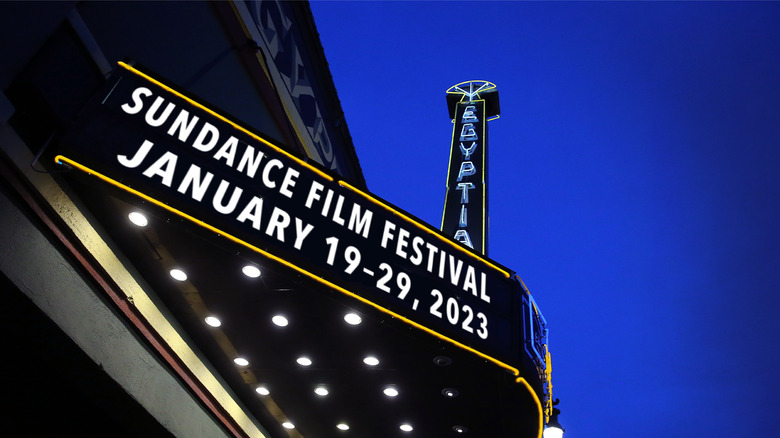The Deepest Breath Review: A Champion Freediver Descends To The Depths [Sundance]
"Extreme sports have extreme consequences." So says the father of safety diver Stephen Keenan in Laura McGann's "The Deepest Breath," a documentary set in the world of freediving, a sport in which competitors dive to the deepest depths possible without the aid of scuba tanks. The danger is established in its opening moments, as the camera plunges underwater with a diver and follows her back upward, only for her to black out just a few meters from the surface. That type of physical response to the incredible stress of these dives is fairly common, and luckily, the professionals have safety divers tracking their progress, on the lookout for warning signs and ready to save lives at a moment's notice. Stephen Keenan was one such safety diver, an Irish adventurer and wanderer who found his purpose deep in the waters off the Egyptian coast. But something happened to Stephen. He's one of the main characters in McGann's documentary — you hear his voice throughout and see old video footage of him — but unlike the rest of the participants, he's never featured in a talking head interview, and it's clear he was involved in some kind of tragedy.
Into the deep
The specifics of that tragedy and how the incident rippled across the freediving community are finally revealed in heartbreaking fashion, but primarily, "The Deepest Breath" tells the story of Italian freediver Alessia Zecchini, who got hooked on the sport at an early age. The movie follows her journey to stardom in her field, in which she encounters obstacles, proves her tenacity, devotes herself to her goals, and ultimately meets, trains with, and falls for Stephen on her quest to set new world records. "Only a few people understand my dream," she says, and thanks to some unbelievable footage, we're able to go underwater with her and vicariously experience why she's so drawn to the dark recesses of the sea. The silence and isolation at those levels make the rest of the world fade away, and the fact that she's relying on nothing but her own mind and body to propel herself there is a big part of the appeal. "By holding your breath, you get to understand a bit more about yourself," Alessia explains, and she's pushed to the physical and emotional brink in search of the depths she craves.
The Blue Hole, off the coast of Dahab, Egypt, is described as more perilous than Mount Everest. It's a dive site in which a diver must perform a lengthy descent, swim perpendicularly underneath a submerged rock arch, emerge on the other side, and then make it back to the surface. The area is littered with makeshift tributes to the people who have died attempting it. This becomes a training ground for Alessia and Stephen, and as she trades world records with a rival, diving to an astonishing 104 meters, everything seems to be going OK for the nascent couple. Until, suddenly, it isn't.
Truly hypnotic underwater footage
McGann continuously underlines how treacherous this sport is, informing us that freedivers' lungs are compressed until they're the size of a fist as they plunge into the dark expanse. Even the most high-profile athletes in this community are not immune to catastrophe: We're informed that Alessia's idol, a Russian freediving champion named Natalia Molchanova, simply disappeared during a dive one day, her body never found.
The director also makes great use of underwater footage that's truly hypnotic to watch; it's so dazzling, in fact, that it's almost enough to distract from the fact that we never get very much insight into Alessia and Stephen's relationship. The timeline is a little fuzzy — maybe they weren't even together long enough for there to be much insight to provide — but since the film treats this couple as its central figures, it feels as if their intersection should be better explored or commented upon. Nevertheless, "The Deepest Breath" is a mesmerizing, powerful glimpse at the irresistible siren call of the deep and a somber record of the human cost of pushing boundaries.
/Film Rating: 8 out of 10


